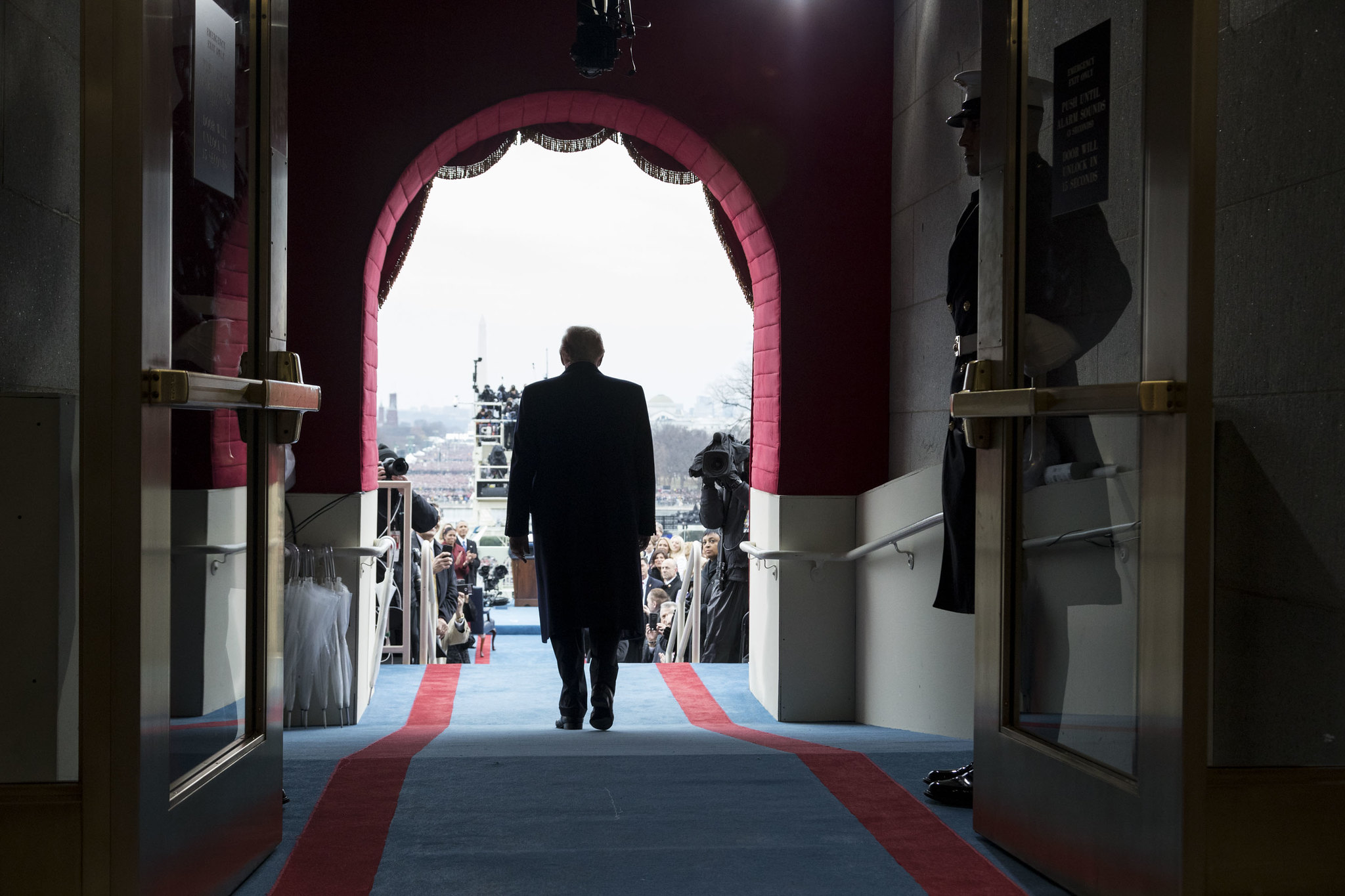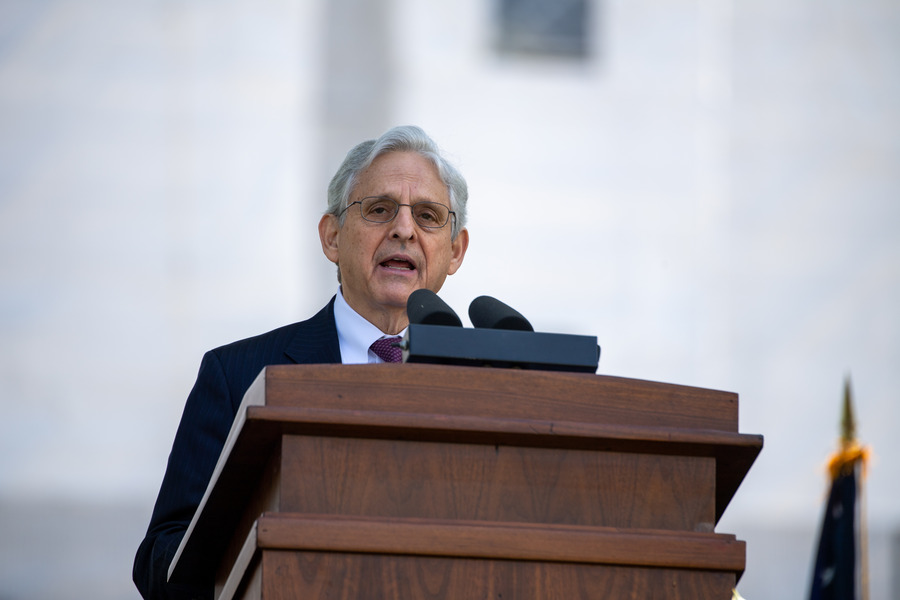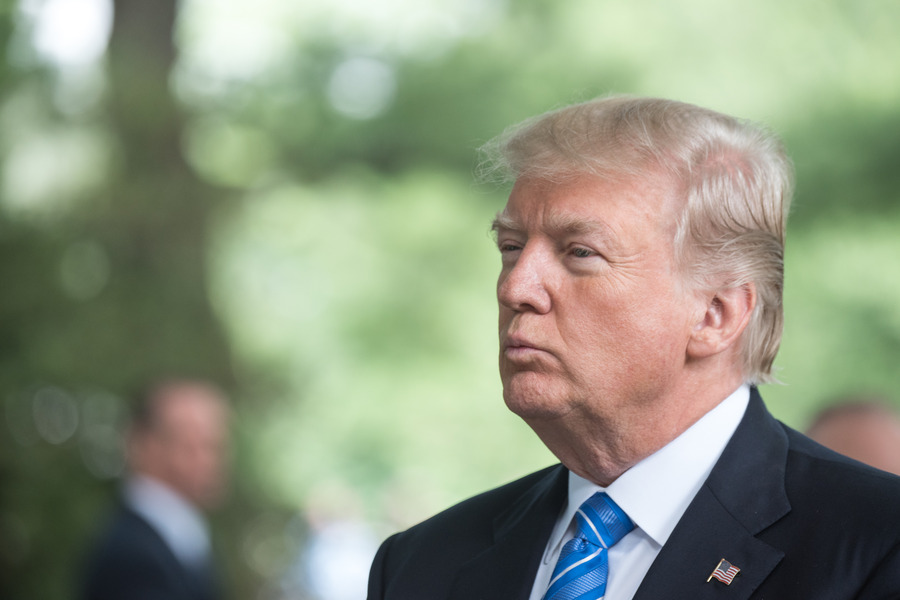The Big One: Trump Is Indicted for Jan. 6

Published by The Lawfare Institute
in Cooperation With

The indictment handed up today by a federal grand jury of former President Donald J. Trump was not a surprise. Trump himself had announced it was coming. Neither was it the first time Trump has faced criminal charges. Twice already this year, state and federal prosecutors have sought and received prior indictments of the man who left office less than three years ago. Nor, indeed, are today’s charges likely to be the last. More seem to be coming in Georgia, at the very least.
But the charges laid out today in Special Counsel Jack Smith’s 45-page, four-count indictment will be the ones forever attached to Trump’s name. They will appear in the first line of his obituary. They will be the facts schoolchildren learn about him as long as schoolchildren learn facts about American presidents. Among the many extraordinary features of his most extraordinary presidency, the facts alleged here—and which the government must now prove beyond a reasonable doubt to a unanimous jury—are singularly defining.
Trump will always be the president charged by the government he led with pursuing, as the indictment puts it, “unlawful means of discounting legitimate votes and subverting” the results of the presidential election that he lost.
In pursuing these objectives, the government now charges, Trump “perpetrated three conspiracies”: one to defeat the lawful federal government function by which the results of the presidential election are collected, counted, and certified; another “to corruptly obstruct and impede the January 6 congressional proceeding at which the collected results of the presidential election are counted and certified”; and yet another “against the right to vote and to have one’s vote counted.”
The government does not allege that Trump was engaged in sedition or that he attempted to overthrow the government. It does not allege that he incited the crowd to violence on Jan. 6. And it does not allege that he sought to engage in a putsch to retain power by force. And yet, the indictment is pregnant with all of these implications.
The federal government, in these pages, is alleging that a president, falsely claiming that an election was stolen, himself tried to steal it, using means up to and including violence.
The oddity of the indictment is that a great deal of it—the overwhelming majority of its narrative, in fact—is already quite familiar. The reason is that the story it tells tracks closely with the work of two prior investigations, both conducted by Congress. First, on Jan. 13, 2021, the House of Representatives impeached Trump for incitement of insurrection; the outlines of the story the special counsel tells here first emerged in the proceedings surrounding Trump’s trial in the Senate.
In a subsequent effort to deliver accountability for the attack, the House Select Committee to Investigate the Jan. 6th Attack on the United States Capitol conducted an 18 month-long investigation. In a series of nine televised hearings in 2022 and in an 845-page final report, the select committee presented its evidence to the American public, concluding that the “central cause of January 6th was one man, former President Donald Trump.” In their final public appearance, the committee recommended to the Department of Justice that it charge Trump with assisting in an insurrection, among other charges. The story Smith tells in this indictment is very much the story the Jan. 6 committee told last year—only nailed down to the exacting standards of criminal law. In this way, the indictment constitutes a major vindication of the prior work of the committee.
On Nov. 18, 2022, Attorney General Merrick Garland appointed Smith as special counsel to oversee the Justice Department’s investigation into “whether any person or entity unlawfully interfered with the transfer of power,” as well as to take over the investigation into Trump’s alleged improper removal of classified documents from the White House to Mar-a-Lago—for which he was charged back in June. Over the past several months, a federal grand jury has heard testimony from some of Trump’s closest allies and advisers—some current and some former, including Trump’s former Vice President Mike Pence, his former Chief of Staff Mark Meadows, and his former attorney and advisor Rudy Giuliani—regarding Trump’s alleged efforts to undermine the results of the 2020 election.
Today’s indictment of the former president is a product of the grand jury’s investigation—and probably not the last. The charges have been brought in the U.S. District Court for the District of Columbia, and the case has been assigned to Judge Tanya S. Chutkan, one of the harsher judges when it comes to sentencing Jan. 6 defendants. Trump will be arraigned later this week in the E. Barrett Prettyman Federal Courthouse in Washington, D.C.—a building just under two miles away from his former home at the White House and just down the block from the Capitol building that his supporters successfully stormed.
To avoid an especially lengthy article, we have published separately our summary of the facts alleged in this indictment and our discussion of the statutes under which Smith has brought charges.
Here we offer some discrete analytical points related to the indictment and Trump’s likely response in litigation—as well as noting some reaction from other Republican candidates for the presidency.
The first point to note about this indictment is that, procedurally, it will be easier to litigate than the one concerning classified material at Mar-a-Lago. That case involves large volumes of classified discovery. This case will involve a large volume of discovery, but none of the relevant material is classified. While one can imagine a hundred complexities in this case, that fact alone will smooth the path.
The second notable feature of the indictment is its almost overpowering factual density. The document is not long, but it contains an enormous amount of information. Each sentence has, one must presume, witness testimony and documentary material behind it. It’s a powerful case, assuming Smith can prove it in court. And it’s one of which the former president should be very afraid.
That said, no criminal prosecution of a former president is likely to be straightforward. And a conspiracy alleging so many different strands of activity is going to be hard to present cogently.
As part of his legal defense, former President Trump is likely to raise a number of legal challenges to both the prosecution as a whole and to specific pieces of evidence. The special counsel’s decision not to bring possible charges relating to incitement to violence, insurrection, and seditious conspiracy, which some observers had argued for, means that he will avoid the range of First Amendment and other constitutional challenges they would likely have raised.
But Trump may still try to resurrect a version of the long-standing Justice Department position that maintains that “statutes that do not expressly apply to the President must be construed as not applying to the President if such application would involve a possible conflict with the President’s constitutional prerogatives” to argue that the criminal statutes in question don’t cover his conduct while president.
He may also challenge the admissibility of certain witness testimony and other evidence by his former presidential advisers and attorneys on executive and attorney-client privilege grounds, even though these arguments largely fell flat before the U.S. Court of Appeals for the D.C. Circuit in the (arguably weaker) context of the Jan. 6 committee investigation.
He will probably raise legal challenges as well concerning the parameters of 18 U.S.C. § 1512(c)(2), at least mirroring other Jan. 6 defendants’ cases that are still winding their way through the courts. And he has already previewed arguments that his presidential campaign would interfere with his ability to put on a strong defense, as well as a jury’s ability to act impartially.
Some of these claims are stronger than others. But even where the odds of success are slim, pursuing these legal challenges as far as he can push them would be consistent with Trump’s broader legal strategy, which seems aimed at delaying the final result of the various criminal proceedings against him until after the 2024 presidential elections, at which point he hopes to be returned to the White House—where he can use the powers of the presidency to make his legal problems go away. The success of these stalling efforts will, in turn, hinge in substantial part on the determination Judge Chutkan shows to move proceedings forward at a fair but deliberate pace—and the willingness of the D.C. Circuit (and potentially the Supreme Court) to back her up on those efforts.
A final question left open by the indictment is why Trump finds himself alone on the wrong side of the v. in the caption. The indictment all but identifies six different co-conspirators and describes several of them—especially co-conspirators 1 (believed to be Rudy Giuliani), 2 (believed to be John Eastman), and 4 (believed to be Jeffrey Clark)—as knowingly and repeatedly engaging in much the same criminal behavior as Trump himself.
It is not obvious why at least some of these co-conspirators are not indicted alongside the man they worked for. This is especially true as the special counsel was not shy about indicting two alleged co-conspirators in the Mar-a-Lago documents case, alongside their boss. One possibility is that at least some of the co-conspirators are considering cooperating, a possibility hinted at by the proffer session that Giuliani reportedly held with the special counsel’s prosecutors the other week. If this proves to be the case, then a set of plea agreements for at least some of the co-conspirators may eventually be forthcoming. But not all of the named co-conspirators show any signs of cooperation.
Another possibility, in light of the unique timing issues raised by Trump’s status as a possible candidate for the 2024 Republican presidential nomination, the special counsel’s office may simply have been intent on indicting Trump and positioning the trial to move as quickly as possible with minimal complications from other defendants.
If this is the case, then more indictments are likely forthcoming. Either way, we will likely have to wait on further action by the special counsel to learn more about how these co-conspirators fit into his broader criminal investigation.
Trump has responded to the indictment with his characteristic equanimity and poise. “Prosecutorial Misconduct!” he exclaimed on Truth Social shortly before the charges were unsealed, decrying the efforts of “Deranged Jack Smith” to “interfere with the Presidential Election.” Two hours later, he “truthed,” “Why didn’t they bring this ridiculous case 2.5 years ago? They wanted it right in the middle of my campaign, that’s why!” In an official statement, the Trump campaign condemned the “disgraceful and unprecedented political targeting” of Trump by the “Biden Crime Family and their weaponized Department of Justice” and compared the prosecution to actions taken under Nazi Germany.
Trump’s rivals for the Republican nomination are seeking to thread a difficult needle, taking advantage of the front-runner’s legal troubles without alienating his devoted supporters. They largely followed Trump’s playbook of decrying what they framed as a political prosecution, without defending Trump directly. Florida Governor Ron DeSantis tweeted a pledge to “end the weaponization of government, replace the FBI Director, and ensure a single standard of justice for all Americans,” while Sen. Tim Scott (R-S.C.) said he “remain[ed] concerned about the weaponization of Biden’s DOJ.”
Activist and GOP primary candidate Vivek Ramaswamy took a more direct approach in favor of the former president, labeling the indictment “un-American” and promising to “absolve Mr. Trump of any responsibility” for the events of Jan. 6, reiterating his pledge that he would pardon the former president should he be elected. By contrast, former Arkansas Governor Asa Hutchinson was direct in criticizing Trump as “morally responsible” for Jan. 6 and calling for him to drop out of the presidential race.
Perhaps the most interesting comment, though, came from Pence, whose own notes featured so prominently in the story told by the special counsel and whose life Trump’s scheme placed under threat. “Anyone who puts himself over the Constitution should never be President of the United States,” he said in a statement, before adding that he hadn’t yet read the indictment and that Trump “is entitled to the presumption of innocence.”
The law enforcement officers injured while defending the Capitol on Jan. 6 took a somewhat different approach. “I look forward to the trial,” wrote D.C. Metropolitan Police Officer Daniel Hodges, who was crushed between two doors by rioters. “All I have wanted from day one is accountability,” said Capitol Police Officer Harry Dunn.
And Michael Fanone, the former D.C. police officer who was attacked and tased by rioters on the Capitol steps, declared: “Donald Trump spent his entire lifetime fucking around and he’s about to find out. I’d like to think that in some small way I played a part in all this.”









-(1)-(1).png?sfvrsn=ebd4ed39_5)
